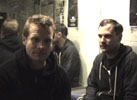 I leant an ear to the previous Sonic Mook compilation mostly becauseColin Newman plugged it on a radio show for Resonance FM during hisfascination with the 'return to rock' which he felt was happening. Rocknever really went away though. There were a few good tracks amongst theinevitable mediocrity and Liars turned out to be a great live band.This third Sonic Mook compilation is mostly so dire it's tragic. Mostof these bands seem to be making utterly botched attempts to filterpunk rock, disco, glam and electro pop through inept lo-fi lobestrainers. The gist seems to be that even if you have little talent,even so little as to be comedic, but have plenty of attitude then youshould feel free to waste everyone's time with your puerile mash upantics. Unfortunately for some of these clowns, some of us have anincling of just how fast time is running out. Each of the twenty-fourbands has been saddled with a patronising little self-beliefsoubriquet, as if their rehashed audio-stew isn't enough in itself tojustify their existance. The turgid Big Two Hundred have the memo'Persistance and determination alone are ominipotent.' Not if this isthe best they could do - watch them disappear. The funniest band mightbe Bane Overlord, whose singer has stolen his entire shtick from Liarsbut lost the essential fraction (weird lyrics, a small dose oforiginality and experimentation), and their drummer makes a go ofwooden funk. At least they're so bad they're funny, unlike the feysynthpopper Ed Laliq who redefines boundaries of dated tedium. !!! suckdue to a crap annoying singer and get my vote as the most over-ratedband with a Brainwashed website [Owch! —Ed.].Radio 4 want to be Gang of 4 so much they couldn't even change thenumber even though there are more than four of them, and at least theycan play even if they are a bit dull and worthy. Valerie can probablyhardly play and couldn't be called dull live, but "Popstar" shows abrash lack of ambition with a song about getting a review in the eNMEy.They are being ironic and are a spit in the face of every serious musowannabe band. I'd like to think irony is at the wooden heart of thepainfully awful Pink Grease, a comedy glam racket who aren't evenfunny. Chrome Hoof at least don't bother with annoying vocals and arecontent to try out being a third rate Add N to (X) rip off. Kings HaveLong Arms are Donna Summer reimagined by a Sheffield beer belly, butmuch less interesting than that might seem. The incredibly over-ratedErase Errata, who are like a less spiky Dogfaced Hermans, contribute alistenable yet forgettable track. This is infinitely preferable to theweak and putrid Lamaque-yoof fodder spewed up by the new wave of newwave of new wave of new wave of diminishing reruns heralded by thesoulless mundanity of Klang and Mommy and Daddy. A few bands transcendthe line of mediocrity below which the tepid diahorrea stirs. The YeahYeahs Yeahs "Machine" is an old song you probably already heard, and itkicks a small bit of wild west ass; Ex Models might be OK if this tightwound strut is one of their weaker tracks, and like The Martini HenryRifles at least summon some energy; and Part Chimp seem out of place bybeing a band who actually rock hard, but their guitarist Tim Cedar'sbeen kicking out the jams for ages now in bands such as Loveblobs,Ligament and Penthouse, so that's no big surprise. If you find this inthe bargain bin for a dollar or two like I did, then this is worthgetting for the Part Chimp track, but you might as well just buy theiralbum instead and cut out all the dated jokes without punchlines.
I leant an ear to the previous Sonic Mook compilation mostly becauseColin Newman plugged it on a radio show for Resonance FM during hisfascination with the 'return to rock' which he felt was happening. Rocknever really went away though. There were a few good tracks amongst theinevitable mediocrity and Liars turned out to be a great live band.This third Sonic Mook compilation is mostly so dire it's tragic. Mostof these bands seem to be making utterly botched attempts to filterpunk rock, disco, glam and electro pop through inept lo-fi lobestrainers. The gist seems to be that even if you have little talent,even so little as to be comedic, but have plenty of attitude then youshould feel free to waste everyone's time with your puerile mash upantics. Unfortunately for some of these clowns, some of us have anincling of just how fast time is running out. Each of the twenty-fourbands has been saddled with a patronising little self-beliefsoubriquet, as if their rehashed audio-stew isn't enough in itself tojustify their existance. The turgid Big Two Hundred have the memo'Persistance and determination alone are ominipotent.' Not if this isthe best they could do - watch them disappear. The funniest band mightbe Bane Overlord, whose singer has stolen his entire shtick from Liarsbut lost the essential fraction (weird lyrics, a small dose oforiginality and experimentation), and their drummer makes a go ofwooden funk. At least they're so bad they're funny, unlike the feysynthpopper Ed Laliq who redefines boundaries of dated tedium. !!! suckdue to a crap annoying singer and get my vote as the most over-ratedband with a Brainwashed website [Owch! —Ed.].Radio 4 want to be Gang of 4 so much they couldn't even change thenumber even though there are more than four of them, and at least theycan play even if they are a bit dull and worthy. Valerie can probablyhardly play and couldn't be called dull live, but "Popstar" shows abrash lack of ambition with a song about getting a review in the eNMEy.They are being ironic and are a spit in the face of every serious musowannabe band. I'd like to think irony is at the wooden heart of thepainfully awful Pink Grease, a comedy glam racket who aren't evenfunny. Chrome Hoof at least don't bother with annoying vocals and arecontent to try out being a third rate Add N to (X) rip off. Kings HaveLong Arms are Donna Summer reimagined by a Sheffield beer belly, butmuch less interesting than that might seem. The incredibly over-ratedErase Errata, who are like a less spiky Dogfaced Hermans, contribute alistenable yet forgettable track. This is infinitely preferable to theweak and putrid Lamaque-yoof fodder spewed up by the new wave of newwave of new wave of new wave of diminishing reruns heralded by thesoulless mundanity of Klang and Mommy and Daddy. A few bands transcendthe line of mediocrity below which the tepid diahorrea stirs. The YeahYeahs Yeahs "Machine" is an old song you probably already heard, and itkicks a small bit of wild west ass; Ex Models might be OK if this tightwound strut is one of their weaker tracks, and like The Martini HenryRifles at least summon some energy; and Part Chimp seem out of place bybeing a band who actually rock hard, but their guitarist Tim Cedar'sbeen kicking out the jams for ages now in bands such as Loveblobs,Ligament and Penthouse, so that's no big surprise. If you find this inthe bargain bin for a dollar or two like I did, then this is worthgetting for the Part Chimp track, but you might as well just buy theiralbum instead and cut out all the dated jokes without punchlines. samples:
- Chrome Hoof - Opus of Regret
- Valerie - Popstar
- Part Chimp - Cover Me



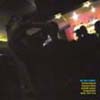 Go download audiomulch from www.audiomulch.com. Fuck about with it forhalf an hour or so and you could almost certainly come up withsomething more interesting than all but two of the tracks on thismediocre compilation. When Merbox II has taken total noise to the topof the hip hops courtesy of the Gay Area of EMI, then there is only oneplace to hide for the diminishing returns of the audio sadist. Thatplace is sheer monotony. Mr Bow (don't call him Merz he hasn't the bassto deserve it since he started conveniance laptopping) drizzles guzzlyover the eager upturned noise gob of Mr Karkowski until Mr Karkowskiwalks out with his dustbin lid in eternal boredom at a completelyun-shocking display of mouldy old dough. That's nothing compared to thestudy in repeat loop tedium provided by Francisco Lopez. There is helpat hand in the form of Gescom who are out of place by actually seemingto give a fuck. How their fellow mentalist experimenters in noise andrepetition must have laughed when they played their electroacoustichomage that actually had some shape and form and did more than merelyexist! A whole album of such nice whooshing would be welcome, even ifthey pale next to the best composers on the Empreintes Digitales label,who I will be writing about very soon. Hecker recorded some austerealmost annoying tones in a few seconds, like crap watch alarms, but doyou really want to hear them more than once? If so you are probably thekind who'll lap up the boring high pitched drivel of Shirt Trax.Incapacitants hold a routine full on screaming grinding onslaught fortough loving pigs everywhere. This seems to be a compilation of themost throw away tracks almost all of the contributing artists have everrecorded. Originally it was going to be released on mini-disc,presumably because most of the tracks seem like mere building blocks.Farmersmanual pull some context from the mess, on two counts. Firsttheir opening track is a minor beauty. Later they play some fairlybland laptop improvisation that I suspect they'd probably like to thinkis more abstract than it is, whilst some ravers fail to get angry andjust request nicely that they drop a bass line so they can dance theirtits off. Farmersmanual don't oblige and just keep chunkling inSheffield. It seems the days when noise could incite riots are gone, orat least lost in the summer lovin' ecstacy of the mundane offcutfreakshow that OR, the Damien Hirst of record labels, has compiledhere. Even Russell Haswell's mum loves a bit of OR very now and again."Lovely, lovely dear, sounds just like me fridge!"
Go download audiomulch from www.audiomulch.com. Fuck about with it forhalf an hour or so and you could almost certainly come up withsomething more interesting than all but two of the tracks on thismediocre compilation. When Merbox II has taken total noise to the topof the hip hops courtesy of the Gay Area of EMI, then there is only oneplace to hide for the diminishing returns of the audio sadist. Thatplace is sheer monotony. Mr Bow (don't call him Merz he hasn't the bassto deserve it since he started conveniance laptopping) drizzles guzzlyover the eager upturned noise gob of Mr Karkowski until Mr Karkowskiwalks out with his dustbin lid in eternal boredom at a completelyun-shocking display of mouldy old dough. That's nothing compared to thestudy in repeat loop tedium provided by Francisco Lopez. There is helpat hand in the form of Gescom who are out of place by actually seemingto give a fuck. How their fellow mentalist experimenters in noise andrepetition must have laughed when they played their electroacoustichomage that actually had some shape and form and did more than merelyexist! A whole album of such nice whooshing would be welcome, even ifthey pale next to the best composers on the Empreintes Digitales label,who I will be writing about very soon. Hecker recorded some austerealmost annoying tones in a few seconds, like crap watch alarms, but doyou really want to hear them more than once? If so you are probably thekind who'll lap up the boring high pitched drivel of Shirt Trax.Incapacitants hold a routine full on screaming grinding onslaught fortough loving pigs everywhere. This seems to be a compilation of themost throw away tracks almost all of the contributing artists have everrecorded. Originally it was going to be released on mini-disc,presumably because most of the tracks seem like mere building blocks.Farmersmanual pull some context from the mess, on two counts. Firsttheir opening track is a minor beauty. Later they play some fairlybland laptop improvisation that I suspect they'd probably like to thinkis more abstract than it is, whilst some ravers fail to get angry andjust request nicely that they drop a bass line so they can dance theirtits off. Farmersmanual don't oblige and just keep chunkling inSheffield. It seems the days when noise could incite riots are gone, orat least lost in the summer lovin' ecstacy of the mundane offcutfreakshow that OR, the Damien Hirst of record labels, has compiledhere. Even Russell Haswell's mum loves a bit of OR very now and again."Lovely, lovely dear, sounds just like me fridge!"  Silkworm are one of those bands who have never really clicked for me,even though lots of cool people including Chris Brokaw and Steve Albiniseem to like them. Shellac are a band whose kick ass originality andhumourous spiky guitar antics have me rushing out to the record shop tobuy each new record on the week of release. A cover of Shellac song isa rare thing. So when Silkworm pay homage with the most obviouslycoverable Shellac song, "Prayer to God," based as it seems to be on theKettle Well murder ballad that Steve Albini and Zeni Geva hadpreviously thrashed out, it might just be a way into their world."Prayer to God" (otherwise known as The-Fucking-Kill-Him-Song) opensShellac's most recent album 1000 Hurtsand always seemed to me to be ripe for a reinterpretation by thatblackly flapping murder balladeer Nick Cave. I guess Silkworm will do,even if the royalty payments to the Electrical Audio Recordists and thethin hair care products warehouse manager who drums on his days offwon't buy them quite as much record shampoo. Well of course it doesn'tcome close to the original and since there's no way to out-rockShellac, especially with no drums, Silkworm take the only sensibleroute and quieten it all down with loose acoustic hillbilly threats.The big rock explosion of the original when Steve screams, "Him justfuckin' kill him," is taken down to an ominous whisper. The way theysing the final amen is almost as if they don't actually care about allthis revenge murder so much. Then they toss off a fairly uneventfulcampfire mandolin strum at a Pavement B-side that was originally mootedas an aborted A-side, and completely ruin a great atmospheric Bedheadsong. There's something about the vocal limitations of the thereeSilkworm singers that loses all the warm vulnerability of the Kadanebrothers. The best track here is their cover of Robbie Fulks' "LetsKill Saturday Night," on which they nail the world weary smalltownescapism of people who don't set themselves on fire with kerosene, butprobably talk about it from time to time. One of them does this reallyneat high pitched hoedown backing vocal on the chorus that makes thewhole damn EP. Appropriately the last song asks "Is That All There Is"and shows what a desolated inspiration Nina Nastasia has been to theirlost dreams.
Silkworm are one of those bands who have never really clicked for me,even though lots of cool people including Chris Brokaw and Steve Albiniseem to like them. Shellac are a band whose kick ass originality andhumourous spiky guitar antics have me rushing out to the record shop tobuy each new record on the week of release. A cover of Shellac song isa rare thing. So when Silkworm pay homage with the most obviouslycoverable Shellac song, "Prayer to God," based as it seems to be on theKettle Well murder ballad that Steve Albini and Zeni Geva hadpreviously thrashed out, it might just be a way into their world."Prayer to God" (otherwise known as The-Fucking-Kill-Him-Song) opensShellac's most recent album 1000 Hurtsand always seemed to me to be ripe for a reinterpretation by thatblackly flapping murder balladeer Nick Cave. I guess Silkworm will do,even if the royalty payments to the Electrical Audio Recordists and thethin hair care products warehouse manager who drums on his days offwon't buy them quite as much record shampoo. Well of course it doesn'tcome close to the original and since there's no way to out-rockShellac, especially with no drums, Silkworm take the only sensibleroute and quieten it all down with loose acoustic hillbilly threats.The big rock explosion of the original when Steve screams, "Him justfuckin' kill him," is taken down to an ominous whisper. The way theysing the final amen is almost as if they don't actually care about allthis revenge murder so much. Then they toss off a fairly uneventfulcampfire mandolin strum at a Pavement B-side that was originally mootedas an aborted A-side, and completely ruin a great atmospheric Bedheadsong. There's something about the vocal limitations of the thereeSilkworm singers that loses all the warm vulnerability of the Kadanebrothers. The best track here is their cover of Robbie Fulks' "LetsKill Saturday Night," on which they nail the world weary smalltownescapism of people who don't set themselves on fire with kerosene, butprobably talk about it from time to time. One of them does this reallyneat high pitched hoedown backing vocal on the chorus that makes thewhole damn EP. Appropriately the last song asks "Is That All There Is"and shows what a desolated inspiration Nina Nastasia has been to theirlost dreams. 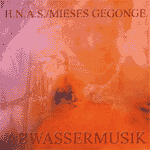 Abwassermusik of 1985 was the first H.N.A.S. LP and was culled from the duo's earlier cassette works. Credited to H.N.A.S. and Mieses Gegonge,the record is the most raw of these first five, relying heavily on themanipulated loops and cut-ups that ground the H.N.A.S. sound, and lesson the unique instrumentation that dominates the next three records. Arudimentary industrial sound carries over most tracks, but hereelements of kraut-rock and tinges of surrealism do emerge. The album'slong centerpiece recalls Throbbing Gristle at first, though evolvesinto a chorus of tribal drums, chirps, and theremin flourishes. As onmost all of these Dom reissues, an album's length of bonus tracks hasbeen added here, most very early, very sparse tape works. Exceptionsand highlights include a pummeling live track from Mieses Gegonge,sounding something like 18 drug-addled Faust-ians grooving in thebottom of a lake, and the first H.N.A.S. vinyl release, an earlyshowcase for Heemann's elegant drones.
Abwassermusik of 1985 was the first H.N.A.S. LP and was culled from the duo's earlier cassette works. Credited to H.N.A.S. and Mieses Gegonge,the record is the most raw of these first five, relying heavily on themanipulated loops and cut-ups that ground the H.N.A.S. sound, and lesson the unique instrumentation that dominates the next three records. Arudimentary industrial sound carries over most tracks, but hereelements of kraut-rock and tinges of surrealism do emerge. The album'slong centerpiece recalls Throbbing Gristle at first, though evolvesinto a chorus of tribal drums, chirps, and theremin flourishes. As onmost all of these Dom reissues, an album's length of bonus tracks hasbeen added here, most very early, very sparse tape works. Exceptionsand highlights include a pummeling live track from Mieses Gegonge,sounding something like 18 drug-addled Faust-ians grooving in thebottom of a lake, and the first H.N.A.S. vinyl release, an earlyshowcase for Heemann's elegant drones.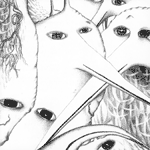 Melchior, released by United Dairies and featuring StevenStapleton and wife Diana Rogerson, is the first in the great trilogy ofearly H.N.A.S. albums. The increased influence of surrealism is notablefrom the start in a brilliant faux-lounge number complete withRogerson's twisted croon. The record is indulgently theatrical in manyplaces; humorous shouting bits and guitar flourishes fill the gapsbetween more overt kraut-rock borrowing (surprisingly Achim has said atthe time the band "knew nothing about Faust, Neu! and all the OHR/Krautbands...") and handclap-ful post punk jogs. The whole mess isbeautifully paced with soothing guitar lines and Heemann's incomparabledrones rescuing each moment of acid-headed confusion. Bonus tracks aremainly '85/'86 era H.N.A.S. tunes, including one of the first (andbest) songs recorded by the Melchior line-up, a gnarled landscape oftrumpet squeal and organ pulse with the spoken refrain, "Listen to thesun rise, hear the birds scream." Experimentation with a variety ofunlikely instruments is at a high among these tracks, creating anatmosphere so difficult to place that it belongs solely to the agelessobscurity of the Dadaists.
Melchior, released by United Dairies and featuring StevenStapleton and wife Diana Rogerson, is the first in the great trilogy ofearly H.N.A.S. albums. The increased influence of surrealism is notablefrom the start in a brilliant faux-lounge number complete withRogerson's twisted croon. The record is indulgently theatrical in manyplaces; humorous shouting bits and guitar flourishes fill the gapsbetween more overt kraut-rock borrowing (surprisingly Achim has said atthe time the band "knew nothing about Faust, Neu! and all the OHR/Krautbands...") and handclap-ful post punk jogs. The whole mess isbeautifully paced with soothing guitar lines and Heemann's incomparabledrones rescuing each moment of acid-headed confusion. Bonus tracks aremainly '85/'86 era H.N.A.S. tunes, including one of the first (andbest) songs recorded by the Melchior line-up, a gnarled landscape oftrumpet squeal and organ pulse with the spoken refrain, "Listen to thesun rise, hear the birds scream." Experimentation with a variety ofunlikely instruments is at a high among these tracks, creating anatmosphere so difficult to place that it belongs solely to the agelessobscurity of the Dadaists.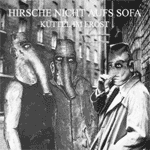 Recorded around the same time as Melchior, Küttel Im Frostis often described as the most pop of H.N.A.S. records. According toAchim, its primary influence was early Chrome, but where it is at allsimilar, Küttel towers above its peers. Rogerson's vocalsreturn, but they've gone from surreal chanteuse to psych screamer. Theastounding title track marks a peak in kraut-rock similarity withoutgiving an inch; it's quickly and artfully unclear how much of a mockeryKüttel's mish-mash of raucous pop and noise-burst is supposed tobe. Bonus tracks all come from H.N.A.S.' first of only two liveappearances. The concert is an excellent addition to this disc as muchof the performance comes from the Küttel album.
Recorded around the same time as Melchior, Küttel Im Frostis often described as the most pop of H.N.A.S. records. According toAchim, its primary influence was early Chrome, but where it is at allsimilar, Küttel towers above its peers. Rogerson's vocalsreturn, but they've gone from surreal chanteuse to psych screamer. Theastounding title track marks a peak in kraut-rock similarity withoutgiving an inch; it's quickly and artfully unclear how much of a mockeryKüttel's mish-mash of raucous pop and noise-burst is supposed tobe. Bonus tracks all come from H.N.A.S.' first of only two liveappearances. The concert is an excellent addition to this disc as muchof the performance comes from the Küttel album.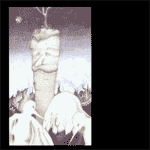 Im Schatten Der Möhre, the third of the truly amazing earlyH.N.A.S. works and the only one Heemann has felt necessary to reissueon his Streamline label, combines the tenuous, staged beauty of Melchior and the twisted jubilation of Küttel to glorious effect. More dense and cohesive than its predecessors, Im Schattenis also less humorous and more demanding. As such, the album could bethe group's most substantial. Bonus tracks here continue on Im Schatten'smore abstract bent, fore-grounding Heemann's future work in Mimir andMirror. Most are compilation tracks or studio outtakes from the '89-'91period, samples, tape loops, and guitar licks (courtesy of Heeman andbrother Andreas Martin) have never been harder to peel apart or label.
Im Schatten Der Möhre, the third of the truly amazing earlyH.N.A.S. works and the only one Heemann has felt necessary to reissueon his Streamline label, combines the tenuous, staged beauty of Melchior and the twisted jubilation of Küttel to glorious effect. More dense and cohesive than its predecessors, Im Schattenis also less humorous and more demanding. As such, the album could bethe group's most substantial. Bonus tracks here continue on Im Schatten'smore abstract bent, fore-grounding Heemann's future work in Mimir andMirror. Most are compilation tracks or studio outtakes from the '89-'91period, samples, tape loops, and guitar licks (courtesy of Heeman andbrother Andreas Martin) have never been harder to peel apart or label. The release that should be the least substantial, 1988's The Book of Deingenskirchen,comprised of the group's unaltered '86 - '88 studio leftovers, is oddlyone of the most entertaining. Understandably more choppy and raw than Aberwassermusik, Bookfeatures a bare-bones industrial sound with elegant, even playfulinterludes and spoken female vocals throughout. Despite its beingessentially a trash heap, Book is the most soothing of allearly H.N.A.S.; comparable to falling in and out of sleep during an oldGerman art film. The bonus material here is by far the most various,collecting obscure compilation tracks from '85 to '92. Bizarre Melchior-ianswing tunes line up next to driving kraut grooves, pseudo-surf tracks,alien drones and absurd found sounds, all effortlessly pieced togetherin the way only H.N.A.S. can, or would.
The release that should be the least substantial, 1988's The Book of Deingenskirchen,comprised of the group's unaltered '86 - '88 studio leftovers, is oddlyone of the most entertaining. Understandably more choppy and raw than Aberwassermusik, Bookfeatures a bare-bones industrial sound with elegant, even playfulinterludes and spoken female vocals throughout. Despite its beingessentially a trash heap, Book is the most soothing of allearly H.N.A.S.; comparable to falling in and out of sleep during an oldGerman art film. The bonus material here is by far the most various,collecting obscure compilation tracks from '85 to '92. Bizarre Melchior-ianswing tunes line up next to driving kraut grooves, pseudo-surf tracks,alien drones and absurd found sounds, all effortlessly pieced togetherin the way only H.N.A.S. can, or would. It's been a tumultuous ride for Greg Dulli. The Afghan Whigs stormedonto the scene in 1986, determined to destroy all the walls that stoodin their way. As the years went by, they slowly metamorphosed into asex rock project, with Dulli's howl shifting more into a purr meant tocoax off panties rather than bust down barriers. And then, after threelabels and fifteen years, they called it quits. Dulli had alreadystarted his new project in the Twilight Singers, but their debut waslanguid and laden with death imagery, probably because Dulli wrote therecord in the pit of a depression determined to kill him. Needless tosay, it didn't fly off the record shelves, despite the best efforts ofFila Brazilia to dance up the dirges. It was time for a change, itseemed, as Dulli parted ways with his second major record label in fiveyears. Now with a firm cheering section in place with Birdman, it feelslike Dulli has hit his stride again, and he's brought the angry swaggerwith it. This limited edition EP is the first new Twilight Singersmaterial in 3 years, featuring a cover and two original tracks. Wherethe Twilight Singers used to be a mellow affair with scattered dancebeats, now it's as if Dulli decided his two bands needed to become one."Black is the Color of My True Love's Hair" is a traditional that NinaSimone made famous, and as he did on Uptown Avondalewith classic soul numbers, Dulli makes it his own with classic verve.It starts off like any Twilight Singers song would, but when theguitars join with Dulli's screams, it's like the Whigs at their height:goosebumps galore. "Domani," too, at first is more like what you'dexpect from the Singers, with soul licks and that sexy vocal. But againthe wall of guitars return halfway through the song, and the Singersare born anew. "Now I can see, everything's clear up here from myposition" says it all as Dulli's confidence has never been thischarged. "Son of the Morning Star" sounds like a remix of anothertrack, with faded vocals and a rapid-fire dance beat. The track's a bitof a throwaway until the strings come in, and even then I wouldprobably skip it on repeat listens. On the strength of the first twotracks, though, the forthcoming album should be a real treat withplenty of sex to go around.
It's been a tumultuous ride for Greg Dulli. The Afghan Whigs stormedonto the scene in 1986, determined to destroy all the walls that stoodin their way. As the years went by, they slowly metamorphosed into asex rock project, with Dulli's howl shifting more into a purr meant tocoax off panties rather than bust down barriers. And then, after threelabels and fifteen years, they called it quits. Dulli had alreadystarted his new project in the Twilight Singers, but their debut waslanguid and laden with death imagery, probably because Dulli wrote therecord in the pit of a depression determined to kill him. Needless tosay, it didn't fly off the record shelves, despite the best efforts ofFila Brazilia to dance up the dirges. It was time for a change, itseemed, as Dulli parted ways with his second major record label in fiveyears. Now with a firm cheering section in place with Birdman, it feelslike Dulli has hit his stride again, and he's brought the angry swaggerwith it. This limited edition EP is the first new Twilight Singersmaterial in 3 years, featuring a cover and two original tracks. Wherethe Twilight Singers used to be a mellow affair with scattered dancebeats, now it's as if Dulli decided his two bands needed to become one."Black is the Color of My True Love's Hair" is a traditional that NinaSimone made famous, and as he did on Uptown Avondalewith classic soul numbers, Dulli makes it his own with classic verve.It starts off like any Twilight Singers song would, but when theguitars join with Dulli's screams, it's like the Whigs at their height:goosebumps galore. "Domani," too, at first is more like what you'dexpect from the Singers, with soul licks and that sexy vocal. But againthe wall of guitars return halfway through the song, and the Singersare born anew. "Now I can see, everything's clear up here from myposition" says it all as Dulli's confidence has never been thischarged. "Son of the Morning Star" sounds like a remix of anothertrack, with faded vocals and a rapid-fire dance beat. The track's a bitof a throwaway until the strings come in, and even then I wouldprobably skip it on repeat listens. On the strength of the first twotracks, though, the forthcoming album should be a real treat withplenty of sex to go around.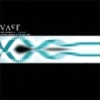 Turquoise is the stronger of the two mini-albums, withharder-edged arrangements and performances. The title track starts offwith the bitter anger of loneliness, and its a tone that remainsthroughout with occasional moments of slower tempo and quiet. There's acold that runs at the core of all these songs, like there's nothingleft at the end of the day to run on. This music is the loss of a loveror a loved one, of innocence, and of dreams you hoped would materializebut always really knew would melt away. As a result, the lyrics givevery little in terms of hope. Some of the lyrics are a bit on the triteside, as well, so my hope is that some of them will change before thefinal release, or the weaker songs will be left off entirely ("Can'tSay No to You" and "Candle" are prime examples). But there is an energyin these songs that is undeniable. Crosby is lashing out, but he's notproceeding unabated. He wants forgiveness, he wants to belong tosomething or someone. That doesn't mean he can't be bitter about notbelonging now. He also has a real gift for melody that shines throughany rough spots that exist. "I Woke Up LA" and "Falling From the Sky"are powerhouse songs, and "Desert Garden" brings to life a futilitythat everyone has felt at some point. Turquoise soars with melodies andhooks, stumbles a little lyrically, but overall walks on its own twofeet with confidence.
Turquoise is the stronger of the two mini-albums, withharder-edged arrangements and performances. The title track starts offwith the bitter anger of loneliness, and its a tone that remainsthroughout with occasional moments of slower tempo and quiet. There's acold that runs at the core of all these songs, like there's nothingleft at the end of the day to run on. This music is the loss of a loveror a loved one, of innocence, and of dreams you hoped would materializebut always really knew would melt away. As a result, the lyrics givevery little in terms of hope. Some of the lyrics are a bit on the triteside, as well, so my hope is that some of them will change before thefinal release, or the weaker songs will be left off entirely ("Can'tSay No to You" and "Candle" are prime examples). But there is an energyin these songs that is undeniable. Crosby is lashing out, but he's notproceeding unabated. He wants forgiveness, he wants to belong tosomething or someone. That doesn't mean he can't be bitter about notbelonging now. He also has a real gift for melody that shines throughany rough spots that exist. "I Woke Up LA" and "Falling From the Sky"are powerhouse songs, and "Desert Garden" brings to life a futilitythat everyone has felt at some point. Turquoise soars with melodies andhooks, stumbles a little lyrically, but overall walks on its own twofeet with confidence.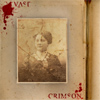 What Turquoise lacks lyrically, Crimsonmore than makes up for. Any album that starts off with "I know you justwant to kill me" is going to ride a rollercoaster of emotions, and onthese songs Crosby lets out all the demons to play. Thematically, thisgroup is also about bitterness and loss, but the feeling is conveyedwith a lighter brush. With the exception of a few songs, this would beconsidered the mellow record, and the confidence is all but replaced bycrippling doubt and insecurity. Where the songs on Turquoise seem to fit together, there is a start and stop on Crimsonwhere things don't exactly match up, and that seems to be part of thepoint. Harder-edged songs are there to break up the monotony andoverwhelming depression, but also to jar and bring across a feeling ofuncomfortability. True, they're demos, but they were arranged this wayfor a purpose. Nevertheless, the songs may not be as agressive, butthey're just as impressive. "I Need to Say Goodbye" is the ultimatekiss-off, the "I won't be played with" song that hits where it hurts."Winter in My Heart" and "Where it Never Rains" bring across both sidesof the love coin, where it's missing and desperately wanted and whereit's found and is clutched at tightly in the hope that it won't go awayagain. The only misstep is the heavy-handed social commentary of"That's My Boy," which seems to be an examination of the culture thatproduced the killers of Columbine. Crosby doesn't complete the thought,and switches to a faith examination that confuses the issue, so thesong doesn't hit the right switches. Overall, it's a minor flaw, andboth mini-albums have enough strong songs to make a fine album. Bothare a step beyond his previous work, and with the right fixing theycould be the makings of the best Vast album yet.
What Turquoise lacks lyrically, Crimsonmore than makes up for. Any album that starts off with "I know you justwant to kill me" is going to ride a rollercoaster of emotions, and onthese songs Crosby lets out all the demons to play. Thematically, thisgroup is also about bitterness and loss, but the feeling is conveyedwith a lighter brush. With the exception of a few songs, this would beconsidered the mellow record, and the confidence is all but replaced bycrippling doubt and insecurity. Where the songs on Turquoise seem to fit together, there is a start and stop on Crimsonwhere things don't exactly match up, and that seems to be part of thepoint. Harder-edged songs are there to break up the monotony andoverwhelming depression, but also to jar and bring across a feeling ofuncomfortability. True, they're demos, but they were arranged this wayfor a purpose. Nevertheless, the songs may not be as agressive, butthey're just as impressive. "I Need to Say Goodbye" is the ultimatekiss-off, the "I won't be played with" song that hits where it hurts."Winter in My Heart" and "Where it Never Rains" bring across both sidesof the love coin, where it's missing and desperately wanted and whereit's found and is clutched at tightly in the hope that it won't go awayagain. The only misstep is the heavy-handed social commentary of"That's My Boy," which seems to be an examination of the culture thatproduced the killers of Columbine. Crosby doesn't complete the thought,and switches to a faith examination that confuses the issue, so thesong doesn't hit the right switches. Overall, it's a minor flaw, andboth mini-albums have enough strong songs to make a fine album. Bothare a step beyond his previous work, and with the right fixing theycould be the makings of the best Vast album yet. 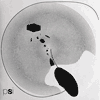 There's altogether too much dilettantism(
There's altogether too much dilettantism(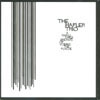 Though I only noticed IT as IT came screaming at my face, the aftermath(the dreams I inflicted upon my lack-of-consciousness through sheerforce of will) was fertilized with ITs form and ferocity. IT was ascattered being made both of sound and image though not entirely solidas if IT were completely of the extended realm. Imagine frames orshards of glass excreting tuneless television stations; nothing butstatic and bursts of images from some broadcast somewhere in theuniverse. Women's voices singing out, exaggerating pain, pleasure, andimagination (though it may be argued that these are really not seperateexperiences). While in my dizzying dream these shards leaned over meand felt their way beyond my oblique and stationary body to the roombeyond where all manner of colors were spilling forth as if the glow ofan old stereo receiver were ejaculating its contents onto the floor andinto the air. I became terrified when ITs voice went metallic andscratched its way into the air with a hiss and scream. I could not moveand there were bells in my ears, now. Perhaps this was the sound offear but my curiousity immediately took control and rendered the airabout me into black cloth and various shades of curtains. I rose andthrew back each cover as if searching for a toy I had lost anddesperately wanted back in my arms. I knew that broken image wassomewhere in this maze, too and so each movement breathed nervoussounds and anxious movements. The glow was there, ITs unearthly aurashining through the ether blinding the meters in front of me. There wasbut one final action for me to take and as I threw adrift the finalveil ITs facade lifted. I stared at her and laughed knowing it meantsomething only so long as I lived.
Though I only noticed IT as IT came screaming at my face, the aftermath(the dreams I inflicted upon my lack-of-consciousness through sheerforce of will) was fertilized with ITs form and ferocity. IT was ascattered being made both of sound and image though not entirely solidas if IT were completely of the extended realm. Imagine frames orshards of glass excreting tuneless television stations; nothing butstatic and bursts of images from some broadcast somewhere in theuniverse. Women's voices singing out, exaggerating pain, pleasure, andimagination (though it may be argued that these are really not seperateexperiences). While in my dizzying dream these shards leaned over meand felt their way beyond my oblique and stationary body to the roombeyond where all manner of colors were spilling forth as if the glow ofan old stereo receiver were ejaculating its contents onto the floor andinto the air. I became terrified when ITs voice went metallic andscratched its way into the air with a hiss and scream. I could not moveand there were bells in my ears, now. Perhaps this was the sound offear but my curiousity immediately took control and rendered the airabout me into black cloth and various shades of curtains. I rose andthrew back each cover as if searching for a toy I had lost anddesperately wanted back in my arms. I knew that broken image wassomewhere in this maze, too and so each movement breathed nervoussounds and anxious movements. The glow was there, ITs unearthly aurashining through the ether blinding the meters in front of me. There wasbut one final action for me to take and as I threw adrift the finalveil ITs facade lifted. I stared at her and laughed knowing it meantsomething only so long as I lived. Simultaneously released with their Rebel Powers' Not One Star Will Stand the Night, Emi Nobuko, Higashi Hiroshi, and Kawabata Makoto's Gekkyukekkaichiserves as a kind of companion to the dark, gnashing tones of theformer. The modus operandi is the same: two extended tracks, an hour intotal, of free improvisation without cuts or overdubs. These are meantto be pure, unadulterated acidic shots to the senses. Unlike RebelPowers, which delved into heavy blacks and grays, the immediate tone ofGekkyukekkaichi is one more concerned with points of light,shimmering into view and filling the senses. The intensity andextremity still exists, but it isn't a lurching menace: it is containedin a more dynamic wash of colors and shapes. The title track twistsaround itself as Makoto's fully live guitar kicks up dust amidst thesparse percussion. It is the sounds of what is seen after looking at abright light for too long and then closing the eyes. The after effectslinger on the cornea like a mix of spectral ghosts, rushing forwardbefore shaking themselves apart to make way for the next hits of eyedamage. It hurts, but it's just so cool to watch. A short interlude inthe middle of the storm allows for a breather before amplifying theenergy to even greater heights for the closing. When "Seiitenrinengi"begins, the restraint in its form is startling compared to the titletrack. Here, there seems to be more method than madness, less staringat the sun and more looking at what it is shining upon. It feels like alandscape soundtrack with the music gently rising and falling to matchthe terrain and trace its image in sound. Nearly ten minutes into thepiece, the landscape takes a harsh turn, and the music rapidly climbsin strength and speed as if the ground just broke out from underneathit. It's a high-speed plunge that sears the eardrums with nasty squallsof white noise and high-pitched, screaming drones. This movement comescrashing to an end and the music sputters, plucks, and taps along thesilence that is now visible as the waves of noise dissipate. Whatemerges from this break is a more focused movement, seeming to meld thefirst controlled section with the second freak-out section. Now, likeany long form piece, there are moments of power that draw the listenerin with their intricacy and inventiveness, but there are also stretcheswhere the needle skips the groove and things just aren't clickingright. Gekkyukekkaichi is a more consistently solid effort than Not One Star Will Stand the Night,but what they share in method and design also leads to them sharinginadequacies. The extended, improvised, one take style results in anaimless, drifting section, or a place where the music could havepossible used a little editing. Still, despite those little deathsalong the way, there are moments of great ideas in these long pieces,and they make for an illuminating listen.
Simultaneously released with their Rebel Powers' Not One Star Will Stand the Night, Emi Nobuko, Higashi Hiroshi, and Kawabata Makoto's Gekkyukekkaichiserves as a kind of companion to the dark, gnashing tones of theformer. The modus operandi is the same: two extended tracks, an hour intotal, of free improvisation without cuts or overdubs. These are meantto be pure, unadulterated acidic shots to the senses. Unlike RebelPowers, which delved into heavy blacks and grays, the immediate tone ofGekkyukekkaichi is one more concerned with points of light,shimmering into view and filling the senses. The intensity andextremity still exists, but it isn't a lurching menace: it is containedin a more dynamic wash of colors and shapes. The title track twistsaround itself as Makoto's fully live guitar kicks up dust amidst thesparse percussion. It is the sounds of what is seen after looking at abright light for too long and then closing the eyes. The after effectslinger on the cornea like a mix of spectral ghosts, rushing forwardbefore shaking themselves apart to make way for the next hits of eyedamage. It hurts, but it's just so cool to watch. A short interlude inthe middle of the storm allows for a breather before amplifying theenergy to even greater heights for the closing. When "Seiitenrinengi"begins, the restraint in its form is startling compared to the titletrack. Here, there seems to be more method than madness, less staringat the sun and more looking at what it is shining upon. It feels like alandscape soundtrack with the music gently rising and falling to matchthe terrain and trace its image in sound. Nearly ten minutes into thepiece, the landscape takes a harsh turn, and the music rapidly climbsin strength and speed as if the ground just broke out from underneathit. It's a high-speed plunge that sears the eardrums with nasty squallsof white noise and high-pitched, screaming drones. This movement comescrashing to an end and the music sputters, plucks, and taps along thesilence that is now visible as the waves of noise dissipate. Whatemerges from this break is a more focused movement, seeming to meld thefirst controlled section with the second freak-out section. Now, likeany long form piece, there are moments of power that draw the listenerin with their intricacy and inventiveness, but there are also stretcheswhere the needle skips the groove and things just aren't clickingright. Gekkyukekkaichi is a more consistently solid effort than Not One Star Will Stand the Night,but what they share in method and design also leads to them sharinginadequacies. The extended, improvised, one take style results in anaimless, drifting section, or a place where the music could havepossible used a little editing. Still, despite those little deathsalong the way, there are moments of great ideas in these long pieces,and they make for an illuminating listen.  I'm consistently impressed by that essential spark in the Japanesecreative potential that seems uncannily able to co-opt elements ofWestern culture and effortlessly transform them into a postmodernhybrid that is strangely familiar, yet entirely alien. There are clearforerunners for the sound of the Acid Mothers Temple — the space-rockof Hawkwind, the fuzz-metal of Blue Cheer and the hippie cult music ofAmon Duul II — and yet guru Kawabata Makoto and his family never engagein heavy-handed imitations of these influences. This cult of shaggy,unwashed heathens has repeatedly shown its talent for creatingforcefully original material that pays homage to its godfathers evenwhile joyously trampling on their graves. Magical Power From Marsis the latest addition to the Temple's absurdly prolific discography.This CD collects the three limited edition hologram EPs released byImportant Records earlier this year, and adds one bonus track availableonly on this release. The cover is another inspired lenticularspacescape - a retro-futurist scene resembling a 1920 World's Fairartist's rendering of humanity's inevitable colonization of Mars. Thetrack titles are puns on glam-era Bowie, oddly appropriate for thesefour massive, cosmic slabs of flamboyantly exaggerated rock n' roll."Ziggy Sitar Dust Raga" feels like an uneasy countdown: a persistentsitar scale backed by lunar synthesizers and a galaxy of hazyreverberations. This track kept me on the edge of my seat waiting forthe eventual onslaught. Ten minutes in, Cotton Casino's "Prepare fortakeoff!" shrieks made me feel ever closer to the inevitable launch.Twenty minutes later and surprise! No liftoff. It's all wind-up with noexplosion, like a long, exhausting tantric sex ritual. The second andfinest track, "Diamond Doggy Peggy," starts with Casino's possessedululations, before kicking the Acid Mothership into high shamanic gear,Makoto's hyperspeed guitar loosening its lysergic vibrations out intothe solar system. Cotton Casino's chirping synths sprinkle fairy dust(or angel dust?) over the cosmic proceedings. The bonus track, "AladdinKane," is a showcase for the Temple's synth and backwards-guitarprowess: a Joe Meek-meets-Tangerine Dream breakdown of galacticproportions. It's a haunting and genuinely creepy track that meandersthrough black holes and nebulous corridors, asking far more questionsthan it answers. "Cosmic Funky Dolly" is the final insult, a 20-minuteanomalous orbit that reverses the polarities of inner and outer spaceas it burns up on re-entry. This final track plays like a remake ofKubrick's 2001: A Space Odyssey directed by Shinya Tsukamoto and starring the Manson Family. Luckily, the incomprehensibly galactic Magical Power From MarsCD conveniently arrives just in time to pop it in the player, drop acidand peruse the new high-powered telescope photographs of the RedPlanet.
I'm consistently impressed by that essential spark in the Japanesecreative potential that seems uncannily able to co-opt elements ofWestern culture and effortlessly transform them into a postmodernhybrid that is strangely familiar, yet entirely alien. There are clearforerunners for the sound of the Acid Mothers Temple — the space-rockof Hawkwind, the fuzz-metal of Blue Cheer and the hippie cult music ofAmon Duul II — and yet guru Kawabata Makoto and his family never engagein heavy-handed imitations of these influences. This cult of shaggy,unwashed heathens has repeatedly shown its talent for creatingforcefully original material that pays homage to its godfathers evenwhile joyously trampling on their graves. Magical Power From Marsis the latest addition to the Temple's absurdly prolific discography.This CD collects the three limited edition hologram EPs released byImportant Records earlier this year, and adds one bonus track availableonly on this release. The cover is another inspired lenticularspacescape - a retro-futurist scene resembling a 1920 World's Fairartist's rendering of humanity's inevitable colonization of Mars. Thetrack titles are puns on glam-era Bowie, oddly appropriate for thesefour massive, cosmic slabs of flamboyantly exaggerated rock n' roll."Ziggy Sitar Dust Raga" feels like an uneasy countdown: a persistentsitar scale backed by lunar synthesizers and a galaxy of hazyreverberations. This track kept me on the edge of my seat waiting forthe eventual onslaught. Ten minutes in, Cotton Casino's "Prepare fortakeoff!" shrieks made me feel ever closer to the inevitable launch.Twenty minutes later and surprise! No liftoff. It's all wind-up with noexplosion, like a long, exhausting tantric sex ritual. The second andfinest track, "Diamond Doggy Peggy," starts with Casino's possessedululations, before kicking the Acid Mothership into high shamanic gear,Makoto's hyperspeed guitar loosening its lysergic vibrations out intothe solar system. Cotton Casino's chirping synths sprinkle fairy dust(or angel dust?) over the cosmic proceedings. The bonus track, "AladdinKane," is a showcase for the Temple's synth and backwards-guitarprowess: a Joe Meek-meets-Tangerine Dream breakdown of galacticproportions. It's a haunting and genuinely creepy track that meandersthrough black holes and nebulous corridors, asking far more questionsthan it answers. "Cosmic Funky Dolly" is the final insult, a 20-minuteanomalous orbit that reverses the polarities of inner and outer spaceas it burns up on re-entry. This final track plays like a remake ofKubrick's 2001: A Space Odyssey directed by Shinya Tsukamoto and starring the Manson Family. Luckily, the incomprehensibly galactic Magical Power From MarsCD conveniently arrives just in time to pop it in the player, drop acidand peruse the new high-powered telescope photographs of the RedPlanet. 